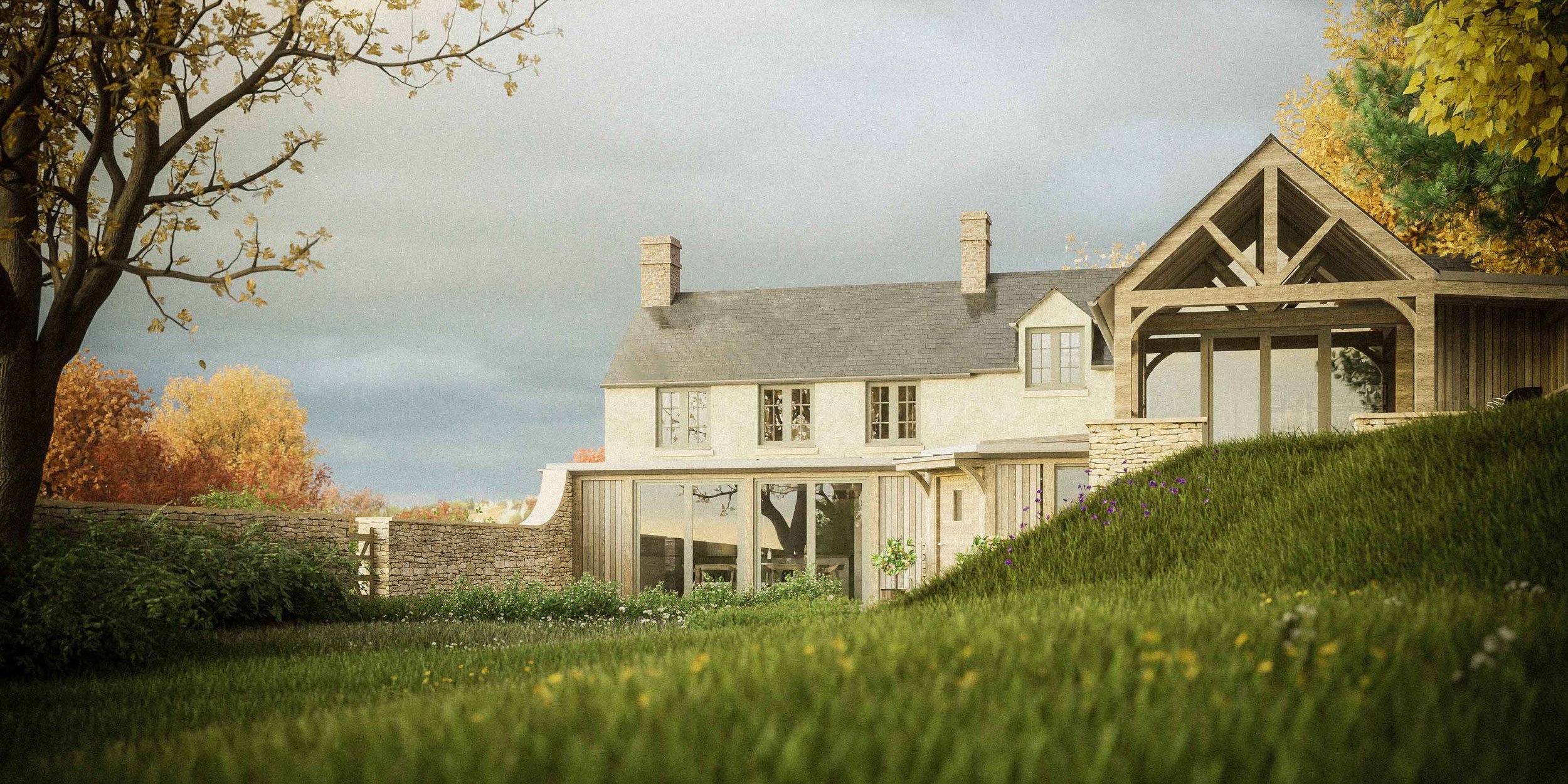
Creative & Sustainable Design for Residential Projects
Joshua Hovey is a RIBA Chartered Architect & Certified Passivhaus Designer, Serving Somerset, Gloucestershire and Surrounding Areas.
Sustainable & Innovative
New-Build
We help self-builders looking to design their dream eco-home, and land owners looking to maximise the potential of their plot. We have a proven track record of securing planning permission within challenging design constraints such as conservation areas, national parks, AONBs and near listed buildings.
Contemporary Extensions
We design beautiful contemporary extensions. Transform your living space by adding natural light, improving the connection with the outdoors and creating harmony between spaces.
Listed and Heritage Property Alterations
Do you have a listed building or period property which lacks natural light, feels disconnected from the outside and has poor flow between living spaces? We are experts at turning period properties into functional homes, customised for modern living.
Sensitively Designed Barn Conversions
We are architects skilled at working with listed buildings such as barn conversions, in conservation areas and AONBs and with complex design constraints. Let us help you to make the best use of your existing building.
Rural Design Architects | Joshua Hovey Architects
5 Key Considerations When Planning a Design Project in a Countryside Setting
Integrating Modern Design with Countryside Charm
When planning a design project in a countryside setting, integrating modern design with the inherent charm of the rural landscape is crucial. Countryside settings often feature traditional architectural styles and natural beauty that can complement contemporary design elements. Rural design architects can help you blend modern aesthetics with the distinctive characteristics of the countryside, ensuring that your project respects and enhances the local environment while providing a fresh and modern appeal.
Emphasizing Sustainability and Environmental Impact
Sustainability is a key consideration for any countryside project due to the often limited infrastructure and resources. Emphasizing environmentally friendly practices can greatly benefit rural settings. Considerations might include using locally sourced materials, implementing renewable energy solutions, and designing for energy efficiency. Rural design architects are adept at integrating these sustainable practices into your design, ensuring that your project minimizes its environmental footprint while fitting seamlessly into the natural landscape.
Maximizing Views and Natural Light
Countryside settings offer unique opportunities to maximize natural light and take advantage of scenic views. A well-designed project should frame and enhance these natural assets. Incorporating large windows, skylights, and open-plan spaces can help bring the outdoors in and make the most of your surroundings. Rural design architects will strategically plan the placement of glazing and design spaces that optimize the countryside views and natural light, creating a living environment that connects deeply with the outdoors.
Addressing Practical Challenges of Rural Living
Designing for a countryside setting involves addressing specific practical challenges associated with rural living. These may include considerations for access roads, water and waste management, and reliable heating solutions. A rural design architect will provide solutions tailored to these practical needs, ensuring that your project is not only aesthetically pleasing but also functional and well-suited to the demands of rural life. This includes planning for efficient services and maintenance strategies that align with the rural context.
Navigating Planning Policies and Permissions
Understanding and navigating local planning policies and permissions is essential for any countryside design project. Rural areas often have specific policies to protect the character and landscape of the area, which can impact various aspects of your design. A rural design architect will be familiar with these planning policies and can help you develop a design that meets all local requirements. They will also assist in preparing the necessary documentation and liaising with planning authorities to ensure a smooth approval process.
By focusing on these five key considerations, you can effectively plan a design project in a countryside setting. Integrating modern design with countryside charm, emphasizing sustainability, maximizing views and natural light, addressing practical challenges, and navigating planning policies are all critical elements. Working with experienced rural design architects ensures that these considerations are expertly managed, resulting in a project that enhances the rural setting and meets your design aspirations.









